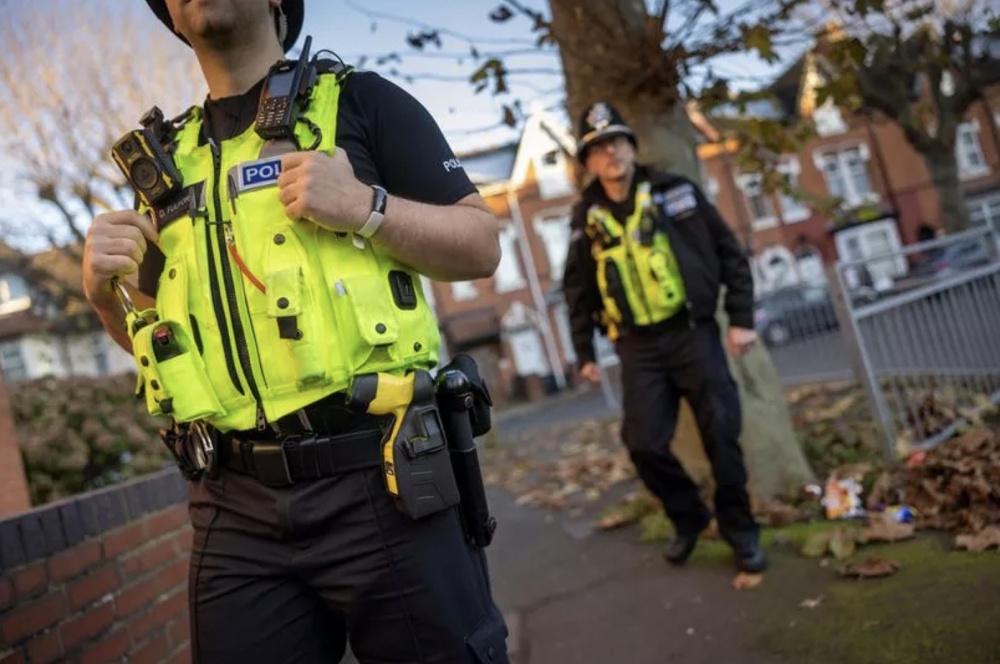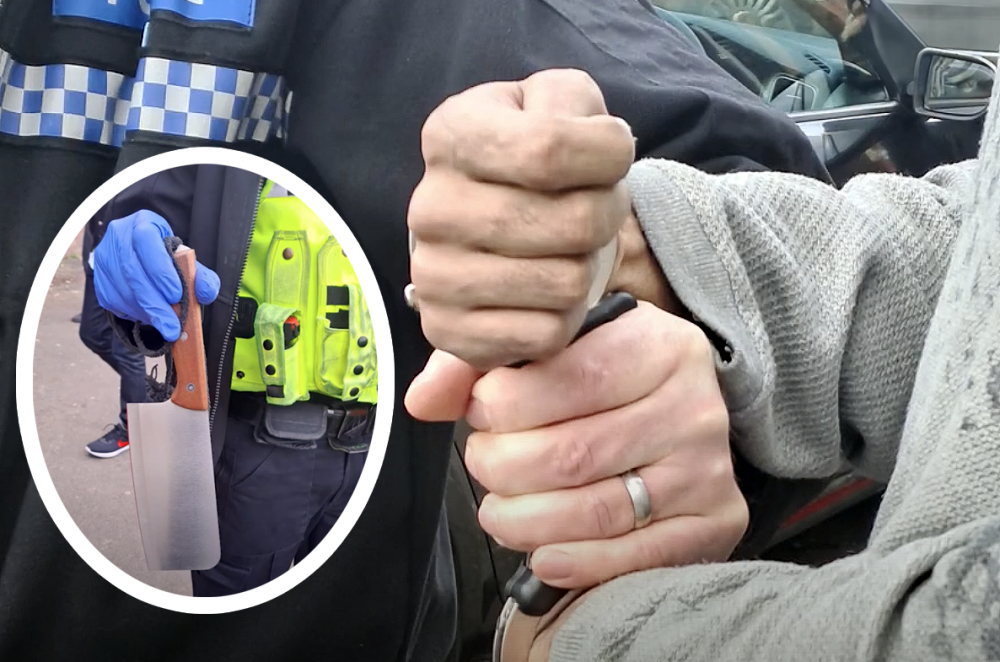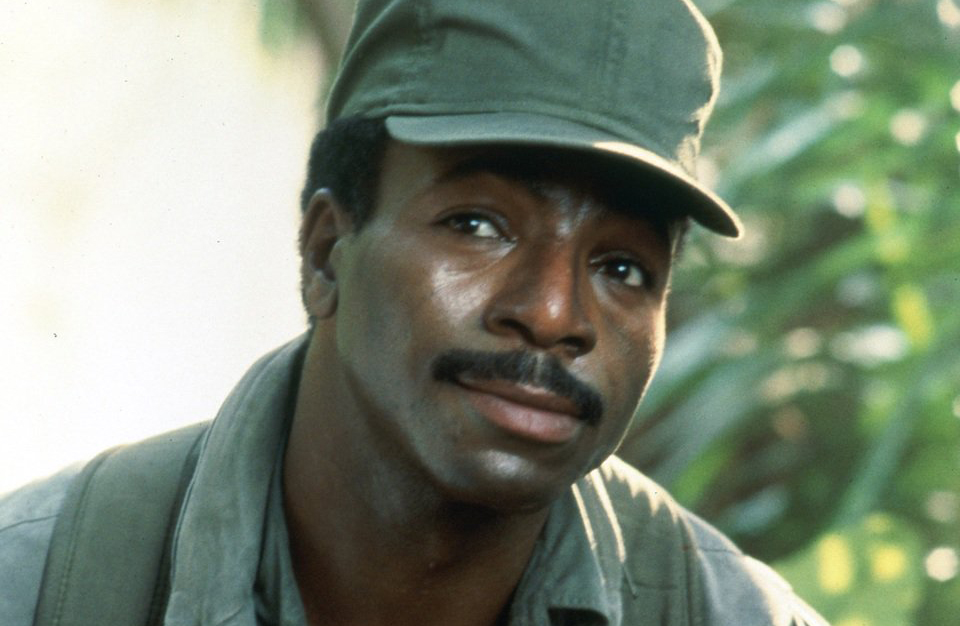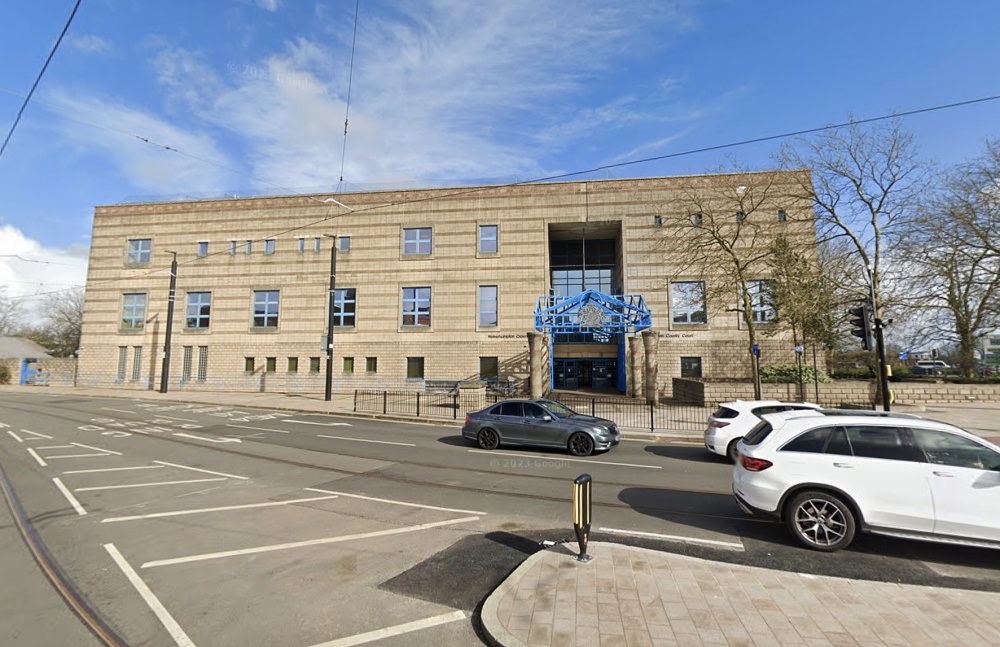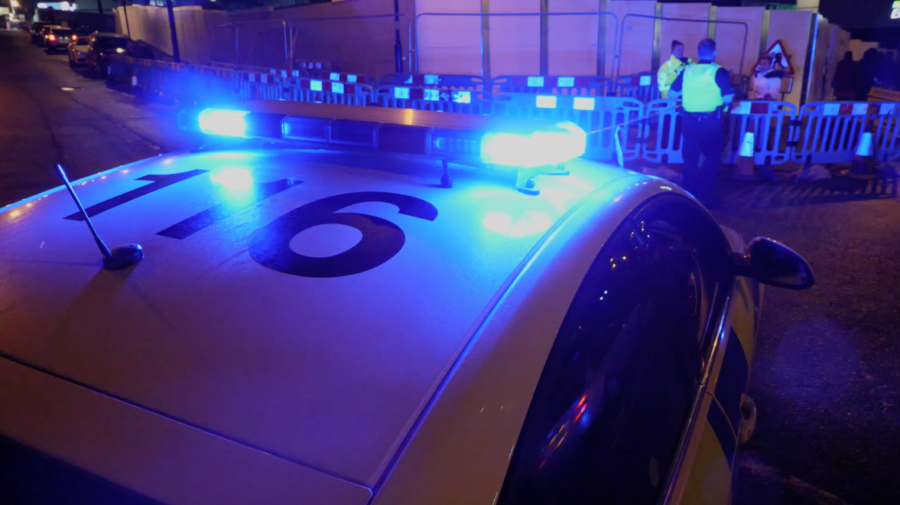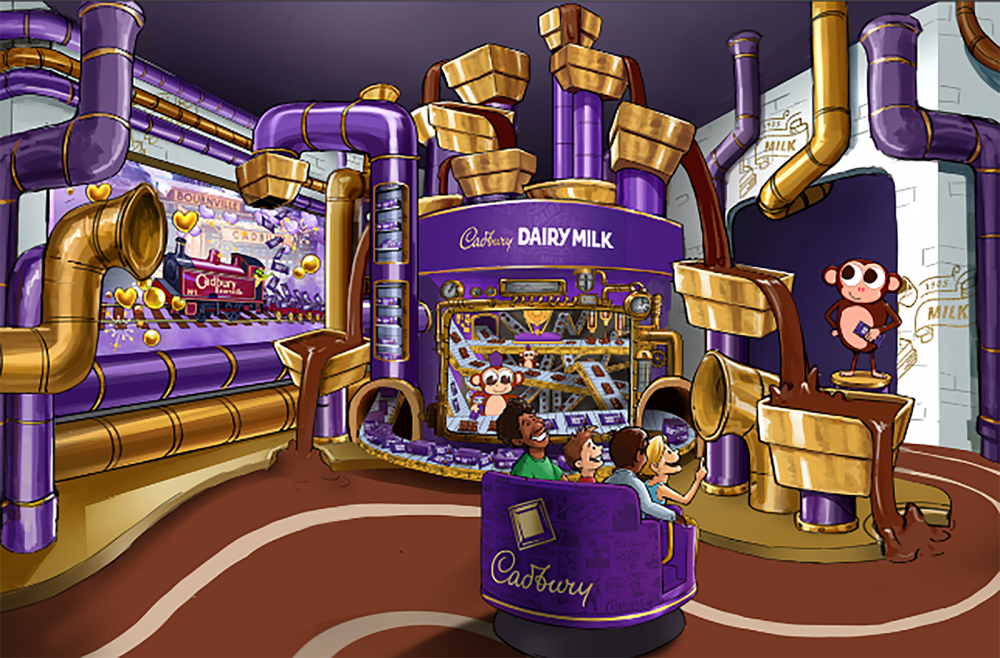REVIEW: ‘Jungleland’ – Birmingham noir film dazzles at city film festival
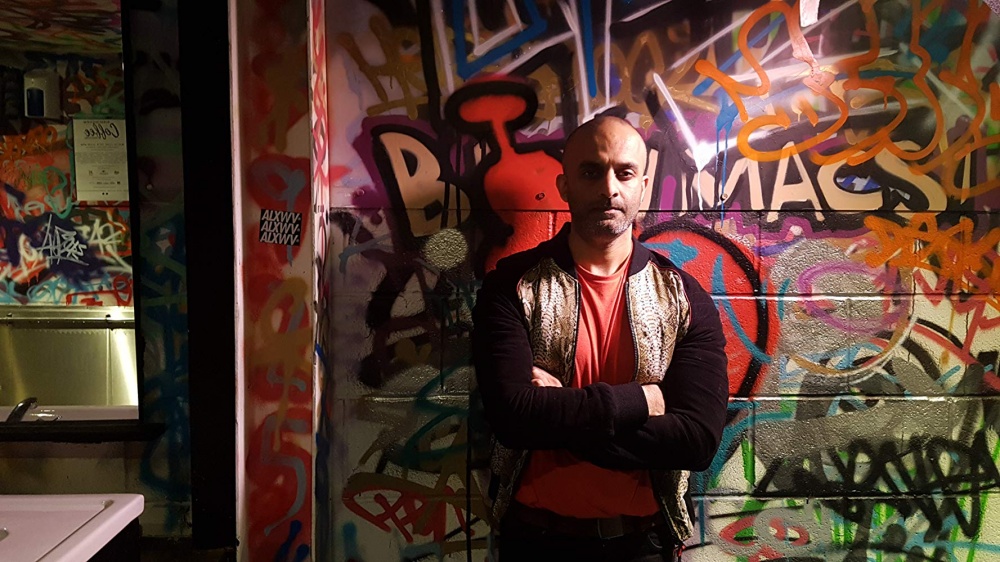
The Birmingham Film Festival premiered a startling new film shot in Digbeth called ‘Jungleland’ which gave film fans a real jolt to the senses.
The former Big Screen at Millennium Point hosted the screening of a spellbinding new film by an exciting new director during the Birmingham Film Festival.
Waheed Iqbal’s ‘Jungleland’ was entered into the Birmingham Film festival where it was nominated for Best First Time Filmmaker along with Best Feature Film. It has been entered in other festivals across the UK and Europe. It recently won Best Feature Film and Best Leading Actor at the Rome Prisma Film Awards.
The audience were dazzled by the visual aesthetic of ‘Jungleland’ which dared to use real Birmingham locations to unveil a story that threw a light on the criminal underbelly of the city.
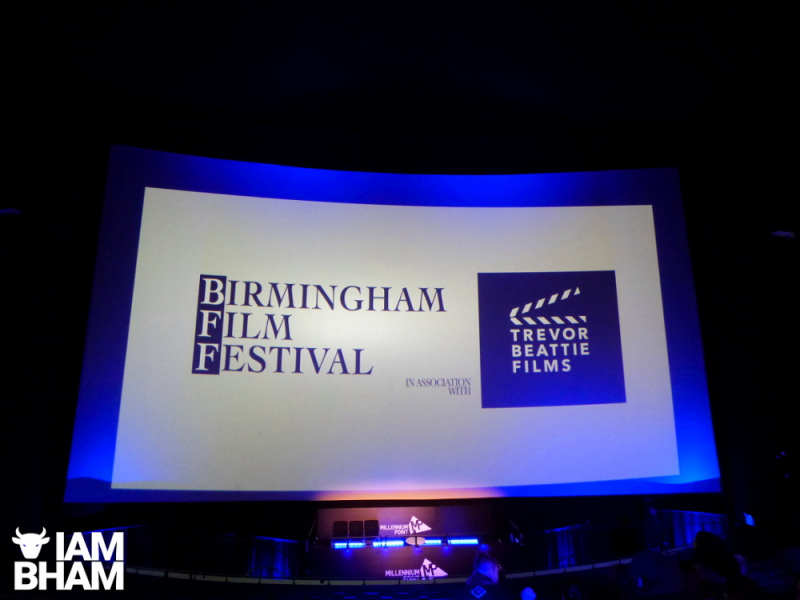 Rangzeb Hussain
Rangzeb Hussain
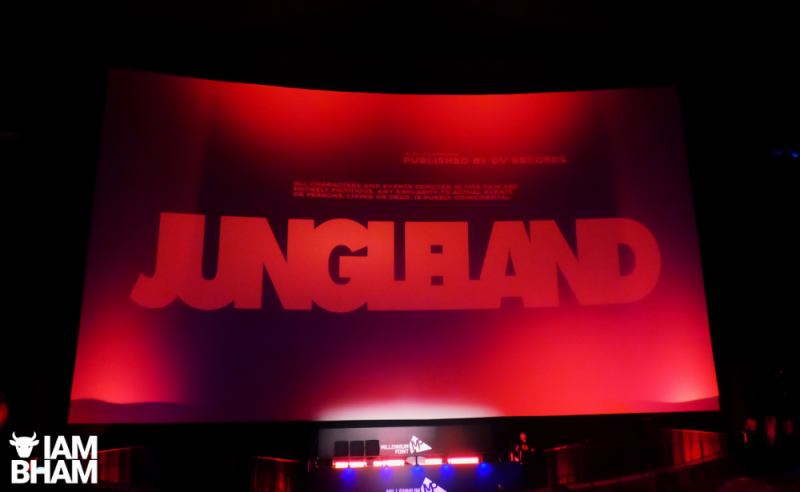 Rangzeb Hussain
Rangzeb Hussain ‘Jungleland’ is a brooding and stylish neo-noir odyssey produced in Birmingham by a cast and crew fuelled less by big bucks and more by passion and imagination.
Waheed Iqbal, the director and also the central character in this remarkable film, has crafted a cinematic experience which goes beyond the traditional fare being screened in modern multiplexes.
Waheed spoke to I Am Birmingham about some of the themes he explores in ‘Jungleland’:
“The main theme I wanted to explore was the question of ‘if I was entering the final days of my life, would I repent, or would I continue being the person I have been my whole life?’
“If I were to repent in my dying days, does that make my life a lie?
“It was a case of this character being true to himself till the very end. I also didn’t want it to play out like a typical genre film.
“If anything, I wanted to twist the internal logic of this type of film in particular.
“Typically a film like this would be a ‘race against time’ type of movie. I wanted to explore something else. I wanted to explore a man who couldn’t escape himself. It could be argued Tanha, the central character of the story, is a man who doesn’t even attempt to escape himself. There was a certain nobility in being true to himself till the very end. Even at the cost of his own reputation.”
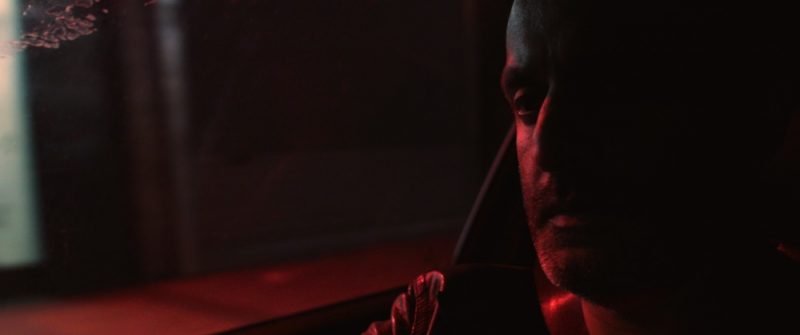 Dead in the City Films
Dead in the City Films The tale of ‘Jungleland’ unfolds in a slow-burning manner, with moments that linger in the mind. The story centres on Tanha (Waheed Iqbal), a shady criminal, who is heavily in debt to an underground gambling crew. He has five days in which to pay or else face dire consequences.
As the countdown nears to the day of reckoning Tanha embarks on a journey that will ultimately see him confront his own insecurities and question his emotionally empty existence.
His days waste away and Tanha’s desperation grows to find a solution to pay off his debts. His life is disintegrating. He tries to find some light and hope through the warm and tender relationship he has with Bonny (Hannah-Lee Osborn), a high-class prostitute who is escorted to clients by Tanha.
His encounters with Bonny bring him moments of solace and contemplation, and he begins to realize that there is more to life than narcotics and casual sex in cars.
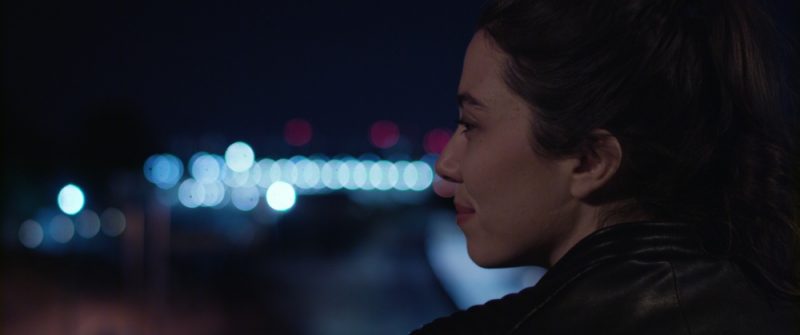 Dead in the City Films
Dead in the City Films He also tries to catch up with his ex-partner (Magdalena Ziembla) who also happens to be the mother of his young daughter. Through these interactions Tanha’s complex character is revealed, layer after layer. Just when you think you ‘know him’ a new facet appears and a deeper understanding emerges.
Tanha is not your typical ‘hero’ or ‘anti-hero’ often seen in Hollywood productions. This man is closer to a reality we are all too familiar with in our own world. We have all probably rubbed shoulders with a man like Tanha in our own lives.
Waheed Iqbal performs the role of Tanha and he invests the character with traits that takes the basic gangster role into more psychologically complex and metaphysical landscapes. He has a compelling and haunting aura about him which allows him to flesh out the character without having to resort to histrionics or melodrama. He imbues Tanha with the glacial calmness of a samurai.
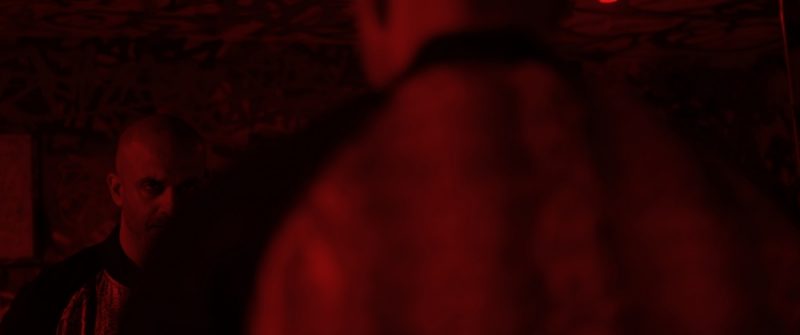 Dead in the City Films
Dead in the City Films The anger seething beneath his calm exterior is kept at bay and when it uncoils it erupts unexpectedly and without mercy. He has no need to speak in long monologues or issue idle verbal threats.
Waheed’s use of body language, combined with long takes interspersed with intense close-ups, and natural charisma expressed subtle nuances that required no extraneous verbal exposition.
Haqi Ali plays the role of Uncle Z who owns a shady snooker club. Z offers money to Tanha to pay off his debt but Tanha declines because he fears that rather than being a solution this offer by Uncle Z might prove to a bigger problem in the long term. He risks exchanging one problem with another.
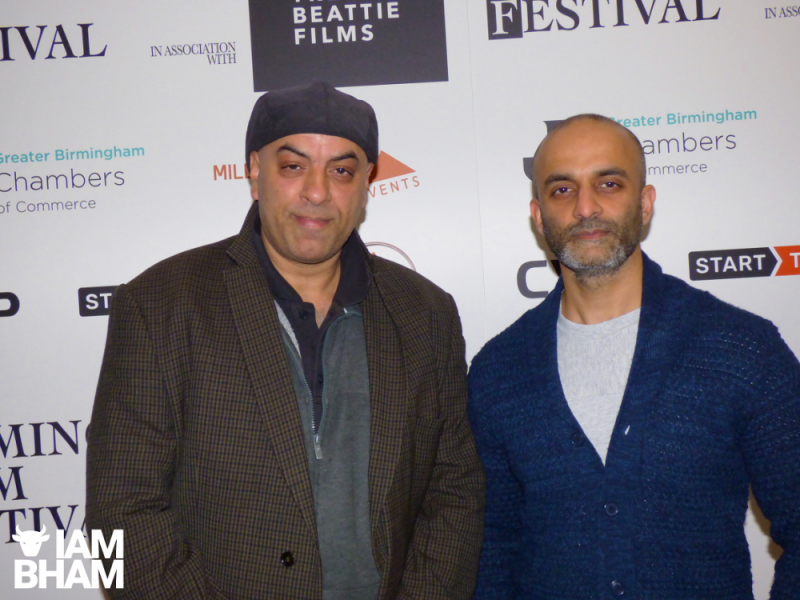 Rangzeb Hussain
Rangzeb Hussain Haqi’s mesmerising performance is so beguiling that the viewer is initially seduced by his Mephistophelian offer to Tanha. His outward charm and warmth conceals a dark undertone that simmers just below the surface.
Uncle Z is a modern day Colonel Kurtz from Joseph Conrad’s ‘Heart of Darkness’ holding court in the backstreet jungles of Birmingham. He ‘stubs’ out the nozzle of a bottle of eye drops into his eyeball without flinching. This raw and primordial act displays the darkness that slumbers in his soul.
This man, who seems to be crafted out of granite, has no need of brandishing a gun or blade to underline his authority. A bottle of eye drops becomes a more potent symbol of the savagery that courses through him. Unlike most of those who inhabit the world of ‘Jungleland’ in a somnambulistic existence, with glazed eyes that see little, Uncle Z has a clarity that sees into the souls of those he meets. He misses nothing even though his eyes may be impaired.
Haqi uses his immense talents to paint reptilian textures onto Uncle Z while at the same time balancing the darkness with a tantalizing sliver of hope laced with an infernal glow.
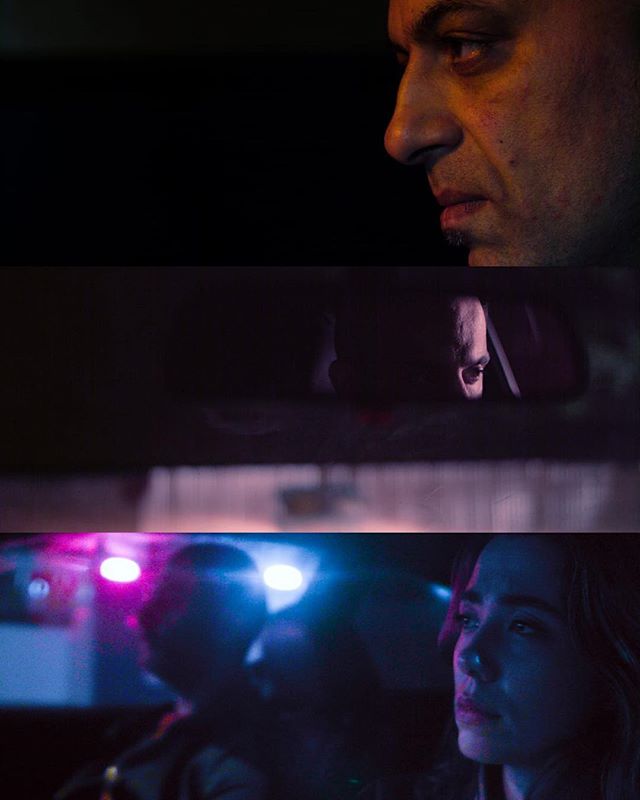 Dead in the City Films
Dead in the City Films The metaphor of the snake is also referenced and embroidered onto Tanha’s character through the snakeskin jacket that he wears as he wanders through the noir world of Digbeth. At the onset of the story Tanha meets the bookmaker to whom he owes a hefty betting sum. The meeting takes place in a bar with a wall painted with a huge mural of the Mortal Kombat game logo, a black dragon coiled and ready to strike like a snake.
Waheed is not afraid to employ metaphors throughout ‘Jungleland’. This movie is a visual and audio tapestry of metaphors, some which are to the fore while others are subtle.
The belly of a teddy bear is sliced open with a blade and the image of the knife is juxtaposed with a lipstick holder being opened, and later during another scene, the red lipstick is edited with the blade covered in blood. The teddy bear is stuffed with money and when it’s handed over to the recipient it’s stained with the blood dripping from Tanha’s injured hands. He hopes to purchase love from an innocent soul by using money gained through crime.
Tanha’s nightly walks and drives to find a way out of his gambling debt ultimately becomes a metaphorical journey into his own soul. He comes to realize there is emptiness there. The same emptiness gnaws at him externally as he tries to fill his existence with soulless carnal and drug fuelled pleasures. There is no passion or soulful gratification in the physical exchanges he engages in.
Tanha comes to understand that to find true rapture he must seek out the balm of redemption. That is the only way to escape the purgatory and the repetitious circles he wanders around in every night. He knows the banality of this inferno is slowly but surely eating away the last remnants of his humanity.
Every day is déjà vu, another exhausting and mind-numbing trudge towards night, without human warmth or joy to make his life bearable. The Holy Grail of light comes in the form of his little daughter but Waheed refrains from adding a sugar-coated Hollywood gloss to ‘Jungleland’.
Tanha displays uncomfortable and disturbing traits when he follows and spies on his ex-partner. When he confronts her the exchanges reveal a dark psychosis which explains why she left Tanha. This man has a personality that could explode without warning and she is frightened of his inner demons.
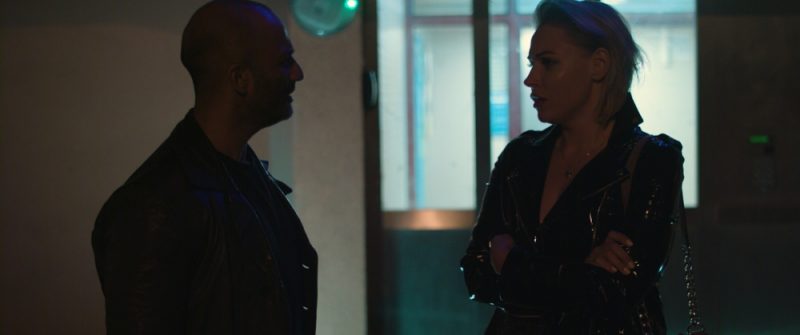 Dead in the City Films
Dead in the City Films The role of women in crime films is often reduced to nothing more than decoration or worse as femme fatales who pose danger to the hero. Waheed removes this misogyny by giving the female characters depth and purpose that goes beyond crude stereotypes.
The women who populate ‘Jungleland’ are human beings trying to survive and exist in a brutal world that has little room for pity or mercy. Some of the working women in this cautionary tale are migrants from Eastern Europe who are being ruthlessly exploited by the criminal underworld.
The emotional needs of these women are neglected by the men in their lives whether they are partners or clients. The men simply take and rarely invest time or feelings into the relationships.
All of the actresses who play the part of the sex workers give natural and organic performances. Dayana Olegova, who plays a Bulgarian prostitute, even injects humour into her scene with Tanha.
Despite their brutal and harsh lives the women of ‘Jungleland’ come across as fighters and survivors. They carry more strength and resilience than the men who try to control and subjugate them.
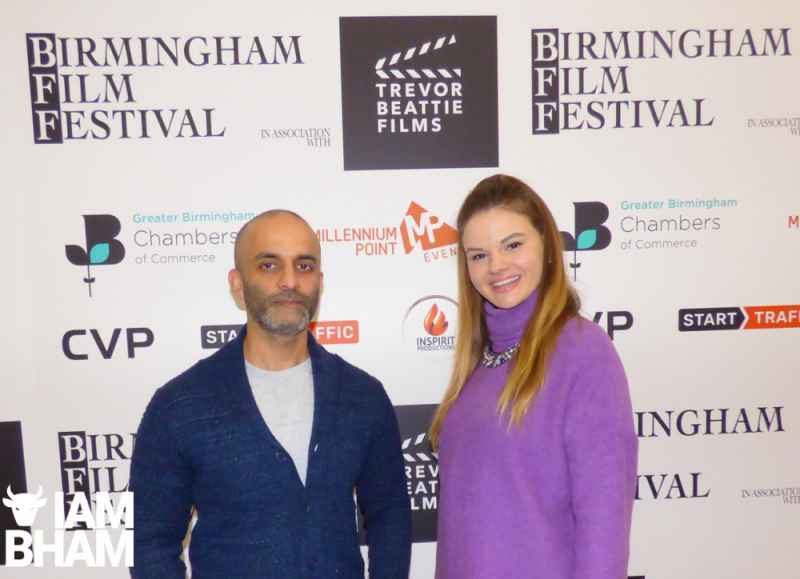 Rangzeb Hussain
Rangzeb Hussain The cinematography in this film is a work of art. The neon reds and lush purples and blues lend a pulsating energy to the movie. The editing juggles wide shots and then juxtaposes extreme close-ups to build up a fragmented and haunted rhythm which mirrors the turmoil inside Tanha’s mind.
The framing often cages Tanha in a tight manner as his world begins close in on him. He sits in his car hemmed in from both sides and the camera framing further imprisons him by framing his reflection in the rear-view mirror.
From every perspective Tanha is being squeezed and light is being filtered out of his existence.
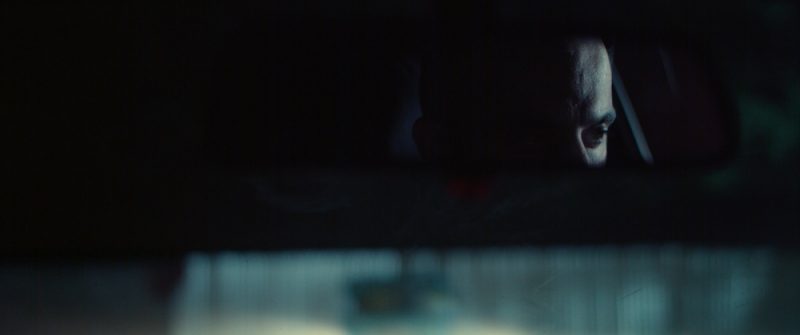 Dead in the City Films
Dead in the City Films Waheed uses onscreen title cards to denote each passing day as Tanha’s time begins to run out. The fonts are plastered in bold blood red letters across the screen. Each time they appear the tension rises. The words blend seamlessly into the visual narrative of the film and become integral to the overall ambiance and aesthetic of ‘Jungleland’.
Another thing which becomes a major component of the film is Birmingham.
This film is Birmingham Noir. The city becomes a ‘character’ that looms large over the people who inhabit the world of ‘Jungleland’. The Victorian railway arches, back-alleys, and vibrant graffiti of Digbeth take on a life of their own as Tanha drives and walks around the location.
This side of Birmingham is one that filmmakers have rarely portrayed in such a raw and vivid way. Birmingham has been used by both British and International filmmakers including several high profile BBC dramas being shot in the city and even Steven Spielberg came to Birmingham and used locations such as the Jewellery Quarter, Spaghetti Junction, and the Custard Factory.
However, most of the productions shot in Birmingham are disguised by set designers and in post-production any reference to Birmingham landmarks are erased through the use of CGI. The identity of Birmingham ends up being drained out of the production.
Waheed stands apart from this concept. ‘Jungleland’ embraces and dances with the very soul of the Birmingham landscape. There is a sizzling cinematic celebration of the city unlike anything seen in recent memory. This film takes the viewer on a journey through Digbeth and it makes no apologies, nor does it feel any shame in trying to hide or ‘cover up’ the raw and rugged landscape. The area is laid bare and the haunting beauty of the graffiti covered industrial back-alleys and streets are celebrated with a feral passion.
Birmingham lives in this film.
The Custard Factory, Suki10c, the BT Tower and the Rotunda all form a vital backdrop in this remarkable film. The camera prowls around the city’s alleys, wanders inside nightclubs and bars, and several key scenes are hosted inside seedy snooker clubs.
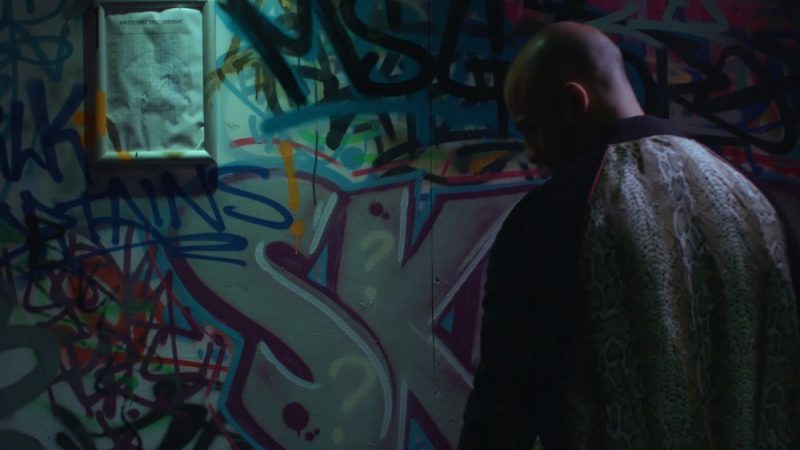 Dead in the City Films
Dead in the City Films Waheed explained about his decision to shoot the film in Birmingham:
“I wanted Birmingham to feel like a character in the film.
“I wanted it to have a presence that leant itself to the tone of the film. Digbeth was perfect for that. Every corner of Digbeth has its own uniqueness to it.
“Digbeth has colour mixed with darkness, and that was the epitome of the look for ‘Jungleland’. Vivid colours mixed with harsh shadows.
“The BT tower was also an important landmark throughout the film. Again, it’s been a part of Birmingham forever, and there was something symbolic about placing it throughout the film.
“I honestly believed we are filming Birmingham in a way no one ever has. Birmingham has never been seen the way we presented it in ‘Jungleland’.”
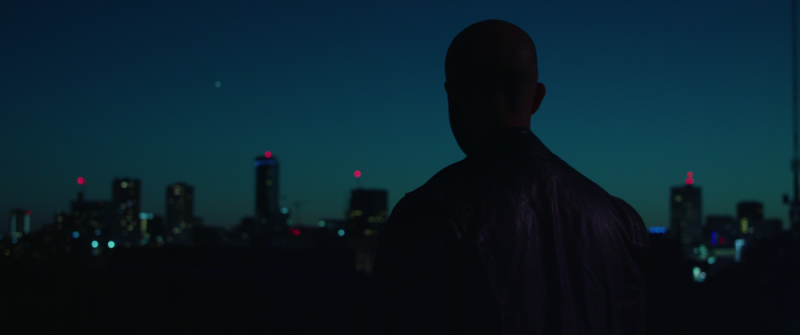 Dead in the City Films
Dead in the City Films Waheed makes an important point in the film which is quite refreshing and encouraging. He portrays Birmingham as a multicultural city where the colour of a character’s skin transcends the clichés seen in mainstream films and television dramas.
In ‘Jungleland’ the chaos and emptiness of existence raging at the core of the tale is one that can consume any man, any race, or any faith. No person is immune to the condition.
Waheed has given voice to an ethnic community in Birmingham that is largely ignored by the arts and entertainment industry both here in the UK and abroad. People with a Pakistani heritage rarely have their stories and experiences put on the big screen in the West without the scripts being tinkered to include cultural or social stereotypes.
The name of the central character in the film is Tanha which has several meanings. In Sanskrit it translates to ‘desire or thirst’, in Urdu it means ‘solitary or lonely’, and in Punjabi it refers to ‘wages’. All these meanings and definitions form a part of the character of Tanha in ‘Jungleland’. Tanha craves for pleasures yet his life is one of alienation and degradation where the money he earns is the wages of sin.
The film has the courage and conviction to use Eastern flavours to tell a story which unfolds in a Western setting and the filmmakers do so without passing judgement or mocking the culture and heritage of any nation.
This is ultimately a story about one man and his choices. In essence, if the contemporary Birmingham setting is removed, this story could just as easily be set in a seedy neighbourhood of New York, Paris, or Berlin.
Waheed stays true to the story of ‘Jungleland’ and refuses to dilute his film with either political correctness or fill the screen with stale clichés. He presents an unflinching experience that reeks with authenticity.
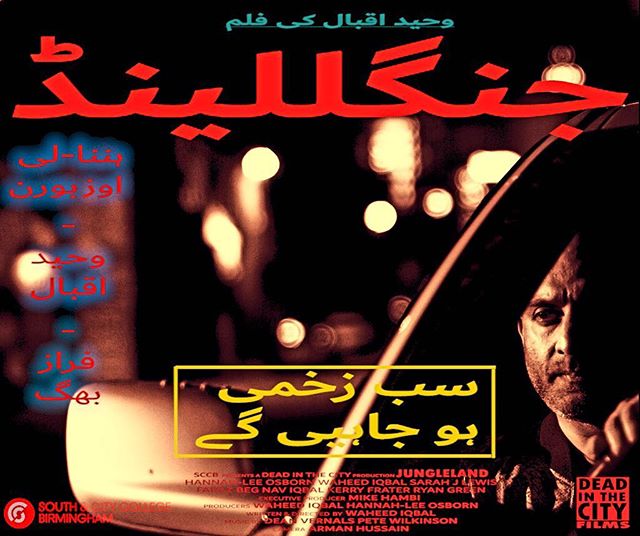 Dead in the City Films
Dead in the City Films The soundtrack to ‘Jungleland’ is another key highlight which adds a truly awe-inspiring aspect to the film. The music uses rhythms and cues which accentuate the Birmingham Noir setting. Low snarling beats rise and increase in tempo as a mid-1980s electro pulse weaves around the decaying urban landscapes like a prowling panther. Waheed discussed his choice of soundtrack and selection of songs:
“The music used comes from a range of artists from Bruce Springsteen all the way to local artists such as Dean Vernals.
“The idea to use electro infused music was to give the pace of the film a perfect contrast.
“The pace of the film unfolds at its own rate, you wait for pieces of information to be given to you throughout the film, and the music was perfect to counter-balance the slow burn nature of the scenes.
“I wanted the soundtrack to feel as though it was heartbeat to the film and to the city itself.”
The pacing of this film may prove challenging to those brought up on a modern cinematic diet of non-stop action where the filmmakers are frightened to pause the action for fear of the audience getting bored or seeing through the bare bones of what passes for a plot.
 Dead in the City Films
Dead in the City FilmsWaheed dispenses with all of these expensive distractions by concentrating on the core themes of the script. He makes us walk with a fractured and haunted character. We see what Tanha sees, we feel what Tanha feels, and we are challenged by the choices that Tanha makes.
The residual effect of the slow pacing of the film allows the story to surface and the characters to become more authentic rather than simply being idealized cyphers. The emotional impact is such that you hunger to spend more time in the presence of these complex characters and see what happens next in their world.
This film is an incredible achievement considering the small budget and the fact it was shot on real locations without the aid of a vast production crew to control all levels of filming. Waheed Iqbal displays a real flair for the film medium.
The tight script, minimalist dialogue, and vibrant cinematography, including performances that never nosedive into melodrama makes ‘Jungleland’ a rare cinematic experience.
‘Jungleland’ has no giant robots, no apocalyptic carnage, and no mindless drivel. What it does have is a story about a man’s apocalyptic journey into his own soul and the truth he discovers deep inside. The carnage and chaos that he battles inside his mind leads to a redemption which is both metaphysical and spiritual. In an era filled with multi-million dollar blockbusters designed to sell merchandising and happy meals ‘Jungleland’ dares to stand apart from the crowd. This is a film with emotional depth and a stark integrity which lingers in the mind long after the screen fades to black. There is no happy meal here. The food ‘Jungleland’ serves enriches and deepens our understanding of the human condition.









